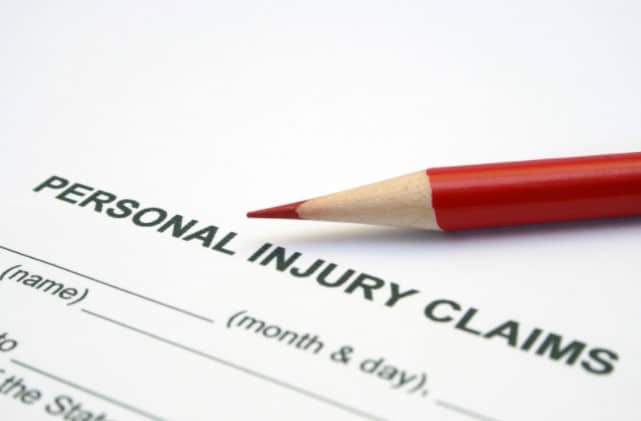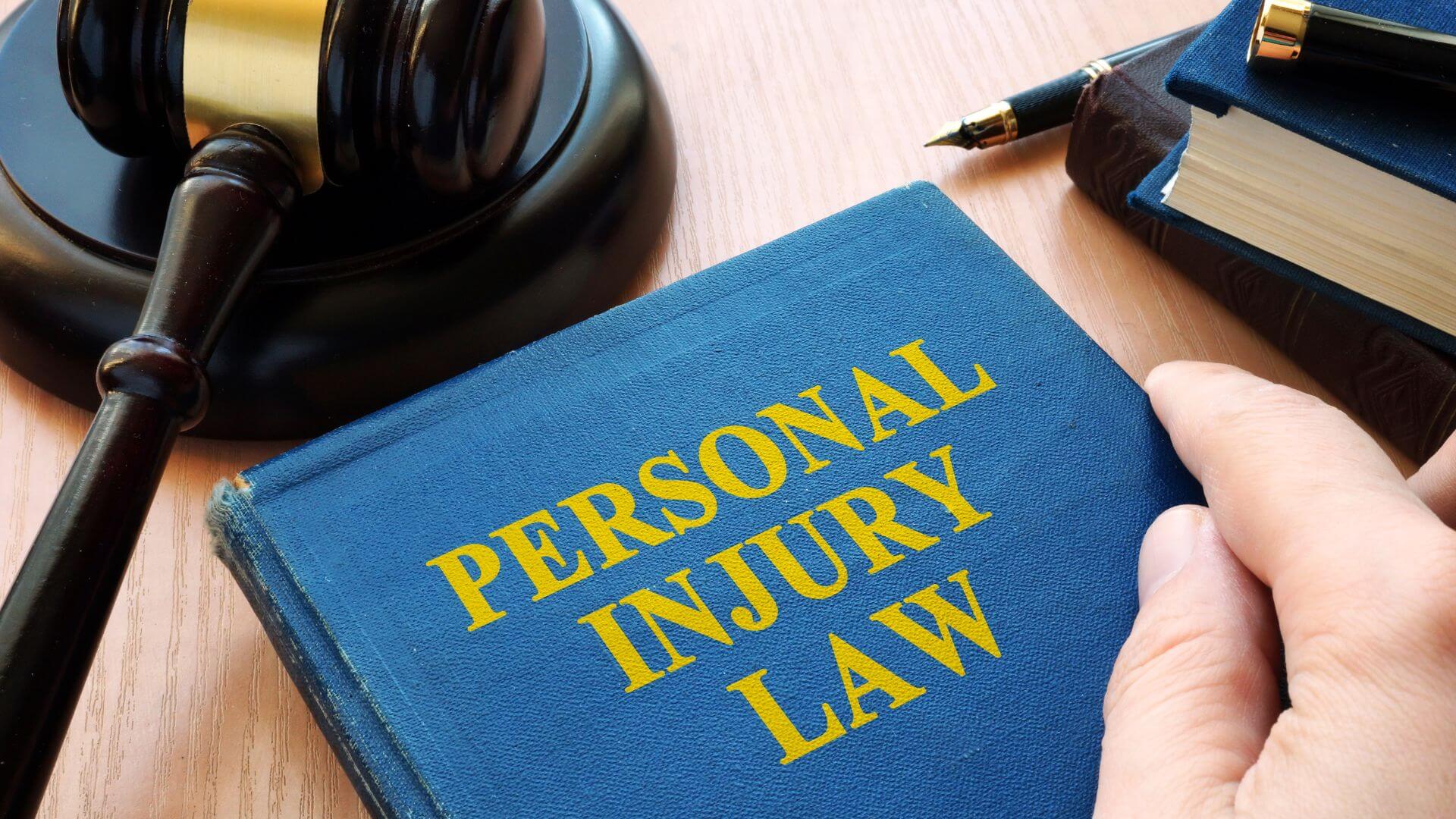Call Us 709-702-6842
How To File A Personal Injury Claim?
Most people who get hurt due to a slip and fall, car accident, or other incident have no idea how to claim compensation for those injuries. However, because filing a personal injury claim can be complicated, it is critical to understand what is involved.
This article will walk you through the steps necessary to begin your personal injury lawsuit. Remember that every situation is unique, so
consult with a lawyer if you have specific questions about your case. Moreover, this post should provide a good overview of the process. So keep reading for tips on how to file a personal injury claim!
What Is a Personal Injury Claim?
It is a legal case you file if you were injured in an accident that was someone else's fault or due to their negligence. It involves the formal process of obtaining compensation from the other party who caused your injury. Their insurance company is usually the party defending and potentially paying out said claim.
Liability for Products
If a person is harmed while using a defective product, they may be able to seek compensation for their injuries. Certain damages, such as those caused by "unavoidably dangerous" products, are not covered.
Slip and Fall Injuries
Slip and fall victims on public or private property may be entitled to compensation for their injuries. Personal injury cases involving slips and falls are typically based on the environment's safety—an injured person's case is strengthened if the danger on the property is unreasonable or unexpectedly dangerous to others.
Unjust Death
Wrongful death claims are made when someone dies because of someone else's carelessness. For instance, the victim's family may be eligible for damages if a fatality is on an unmarked construction site.
Typical Personal Injury Claims
Personal injury is a broad area of the law that encompasses many different types of injuries. However, certain types of individual injury cases are more common than others.
Here are types of personal injury claims that can be pursued (generally) with the assistance of a personal injury lawyer.
Car Accident Injuries
If a person is harmed in a car incident and is not at fault, they can seek compensation for their injuries. Plaintiffs must provide medical documentation detailing their injuries, insurance information, and a police report detailing the events of the accident.
Malpractice in Medicine
Injuries caused by a doctor's negligence are the subject of medical malpractice cases. In these personal injury cases, the doctor must typically have broken a rule or taken incorrect, negligent, or inappropriate actions while treating a patient.

Tips to File a Claim for Personal Injuries
1. Get Certified Medical Records
After being involved in an accident or suffering an injury, a person should seek immediate medical attention. This could entail going to the emergency room or your primary care clinic. Even though many conditions do not manifest immediately after an accident, the worst symptoms can be relieved or avoided with an early examination. Furthermore, early medical records can be used as evidence with an insurance claim and with judges or juries if the case ends up in trial.
2. Find Legal Counsel
While many minor personal injury claims can be settled without the assistance of a lawyer, solicitors are more likely to obtain more significant awards for claimants who would otherwise try to resolve on their own. Because personal injury lawyers frequently provide free initial consultations, claimants should consult with a lawyer before filing.
3. Investigate the Incidents and the Injuries
When a person hires a lawyer, they will first talk to the claimant about the accident, injuries, and medical care. Then, the lawyers will ask for records of any medical care that may have been given. To help build a client's case, a solicitor may also decide to work with accident reconstruction professionals or other consultants.
4. Establish Carelessness
Most cases involving personal injury involve negligence or the failure to exercise reasonable care in a situation where another person could be injured. For instance, a driver may be considered negligent if he was under the influence while driving. If the driver had not been impaired by alcohol, he likely would not have disregarded traffic laws and struck the plaintiff. Although proving negligence can be difficult for plaintiffs acting alone, an experienced injury lawyer can assist their clients in navigating this step.
5. Serve Claim Notice
If a person decides to pursue a claim for damages, they must notify all parties involved of their intention to file a lawsuit. It is also known as "process service." Typically, a professional process server, court official, or law enforcement officer personally delivers the notice.
6. Begin Settlement Negotiations
Before court proceedings, a claimant's lawyer may make a demand to the defendant's attorney or insurance company. When this occurs, the attorneys will attempt to negotiate a settlement that both parties will accept. Most claims involving personal injuries are settled at this stage, though a settlement cannot always be reached.
7. File a Lawsuit
When the plaintiff and their solicitor file a personal injury lawsuit in court, litigation commences. It will initiate the discovery phase, during which each party will investigate the claims and defenses of the other. Both parties must respond truthfully and entirely to all requests for information. Due to the extensive documentation required during the discovery phase, it can last up to a year.
8. Consider Mediation
The lawyers will have another opportunity to settle the case following the conclusion of the discovery phase. This step, known as mediation, involves a meeting between the disputing parties and a neutral third party. The mediator will attempt to assist the plaintiff and defendant in resolving the case to their mutual satisfaction. Nonetheless, if mediation fails, the case will proceed to trial.
Final Thoughts
In conclusion, hiring personal injury lawyers is significant to file a claim for damages. Personal injury claims can be complex and challenging to navigate without legal assistance. By retaining the services of an experienced personal injury lawyer, you can ensure that your case is handled correctly and that you receive the maximum amount of compensation possible.
If you or a loved one has been injured in a motor vehicle accident or through no fault of your own, contact a reputable
Newfoundland injury lawyer immediately. To ensure that your case is handled correctly from the beginning and that you are well informed of your rights, a personal injury attorney will guide you through each step, ensuring that you are eligible for maximum compensation. Numerous accident victims have attempted to handle their cases directly with insurance companies; however, this is not recommended. Insurers exert considerable effort to limit payouts, sometimes persuading victims to settle early.
Frequently Asked Questions
-
Can I Sue in Canada for Pain and Suffering?
Under Canadian law, injured people are entitled to compensation for their pain and suffering. The purpose of general damages for pain and suffering is to compensate a victim for pain and suffering, loss of life's luxuries, inconvenience, and loss of life's pleasure.
-
In Canada, Are Personal Injury Settlements Taxable?
The immediate response to this question is no. Generally, the Canada Revenue Agency (CRA) does not consider personal injury settlements taxable income. This is the case for automobile collisions, slip-and-fall incidents, and other personal injury claims.
-
How Do I Sue for Emotional Damage?
You can sue for the emotional distress caused by discrimination, known as “mental anguish" You must explain how the form of discrimination resulted in psychological pain. Request that your family, friends, coworkers, medical professionals, and support staff serve as witnesses to how this incident has affected you.
Get in Touch With Us Now
Newfoundland Injury Law Firm, has access to some of the most knowledgeable lawyers. We are committed to advocating for you and ensuring you receive fair pay. If you or a loved one has been injured in a car accident or another accident through no fault of your own, contact a reputable Newfoundland personal injury attorney immediately once.
A
personal injury attorney
will assist you at every level of the process to ensure that your case is handled correctly from the start and that you are informed of your rights, ensuring you are entitled to the maximum amount of compensation.
On numerous occasions, accident victims attempted to handle their claims directly with insurance companies, although this is not recommended. Insurers work hard to reduce compensation by urging victims to settle soon. The risk extends beyond the smaller return; victims may have serious wounds that take years to cure, and settlements are designed to limit any long-term assistance they may receive.
We will get back to you as soon as possible
Please try again later
About Us
When you or a loved one has been injured in an accident, call the team at Newfoundland Injury Law for all your personal injury needs.
Contact info
Newfoundland Injury Law
1 Church Hill, Suite 201, St. John's, NL A1C 3Z7, CAN
Copyright © 2021| Sidhu Law Group | All Rights Reserved

